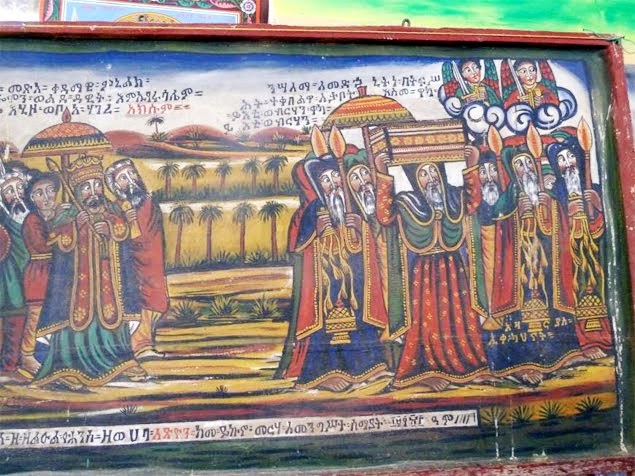Recently I was asked about the origin of the Ethiopian Jews. And, while I am no expert on the matter I have researched it for several years now. Here’s what I’ve found.
There are different terms used to refer to the Jews of Ethiopia:
- Beta Israel (the House of Israel) – Many Ethiopian Jews prefer this term to the others below. Knowing their ancestral lineage, and the destruction of Jerusalem, the Ethiopian Jews considered themselves the rightful guardians of all things Israelite.
- Falasha – This is considered a derogatory term by Ethiopian Jews. It literally means “foreigner” or “exile”, and was often used by non-Israelite Ethiopians (and others) to demean and persecute the Jewish people among them.
- Kushite – “Kush” is the Hebrew word for Ethiopia. This term is often used in certain versions of the bible. The biblical name “Kushi” referred to a person from Ethiopia, and was not distinguished between Israelite and non-Israelite.
There are also different versions of the origin of the Ethiopian Jews – or how there came to be Jews in Ethiopia. And, in order to address that issue, I must give some biblical, historical perspective.
The land of Ethiopia or Kush was a much larger region than we know it in our day. Egypt (Mizraim) and Kush (Ethiopia) bordered each other, and there were no separate states of Sudan, Kenya, Somalia, Yemen or Saudi Arabia. 

This an important fact for three reasons:
- Ethiopia (the horn of Africa) was among the wealthiest and most powerful regions in the known world. Isaiah 18 describes a people so powerful that they were revered by everyone.
- There was movement between the region of Ethiopia and Israel, and it was nothing extraordinary for someone to travel from one land to the other. The Queen of Sheba/King Solomon story of 1 Kings 10 was not remarkable because someone from Ethiopia visited Israel; but rather because the Queen took an official delegation for the purpose of verifying Solomon’s wisdom.
- Because travel back and forth between Aksum (ancient Ethiopian capital) and Jerusalem was fairly common, it explains why there were Jews living, working and studying in Ethiopia – especially after Israel was divided following Solomon’s death.
With that backdrop let’s consider the different possibilities of the origin of the Ethiopian Jews:
- Members of the “lost” tribe of Dan – Operation Solomon (Israel’s 1980′s airlift of the Ethiopian Jews) was started by the Israeli government only after rabbis declared that Beta Israel were members of the lost Israelite tribe of Dan. This would mean that some Ethiopia Jews were citizens of the northern kingdom of Israel, and were exiled during the Assyrian invasion (8th century B.C.E.).
- Descendants of Melenik, son of Solomon and Sheba – In the Ethiopian history books (Kebra Negast “glory of the kings”) there is a story about Sheba’s and Solomon’s love affair, and the child born to that union. The child’s name was Melenik, and it is taught that, with his ascension to the throne at Aksum, David’s reign extended to the land of Kush. The legendary Emperor Haile Selassie (the person for whom the Rastafarian movement began) is said to be a direct descendant of Melenik.
- Jews who migrated to (and remained in) Ethiopia after Israel divided – The vast majority of the African Jewish diaspora seems to have come through Ethiopia. This would include the Lemba of Southern Africa, and the Igbo of Western Africa. All three branches of these African Israelites have oral traditions that date back some 3,000 years.
In my humble opinion the origin of the Ethiopian Jews is a combination of all of the above (and more). Centuries of lost information, racially biased teaching, andReplacement Theology have made tracking the African-Israelite Diaspora very difficult. But new technology (along with the move of G-d), has allowed us to experience an age of unprecedented discovery.



No comments:
Post a Comment